
Ayush Bhargav
1,093 pts
Master

Positive Vibes Only
Versatile Content Writer || Positivity || Growth ||
Posts

When things aren't going your way, it can feel like you're stuck in a storm without an umbrella. But fear not, my friend, because there are steps you can take to weather the rough patches and come out stronger on the other side.
Take a deep breath. It's okay to feel frustrated or disappointed but don't let those emotions overwhelm you. Give yourself a moment to acknowledge how you're feeling, and then shift your focus to problem-solving mode.
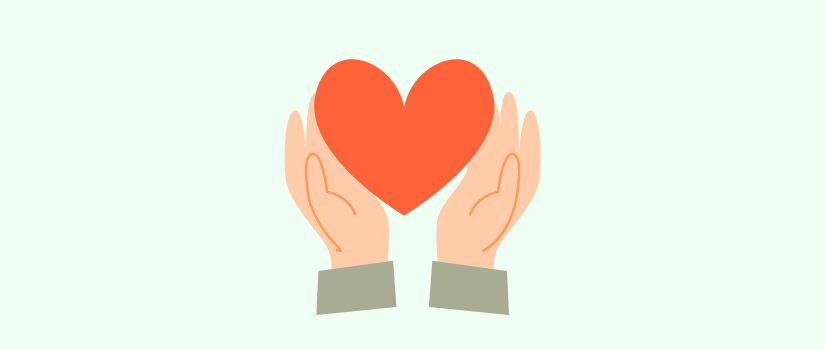
Kindness is about being considerate, compassionate, and empathetic towards others. It involves showing care and support, which can make people feel valued and respected.
When someone is kind, they create a positive and uplifting atmosphere that fosters trust and connection.
Honesty, on the other hand, is about being truthful, transparent, and genuine in our interactions. It involves communicating openly and authentically, which helps build trust and understanding between people.
When someone is honest, they promote integrity and accountability, which are essential for healthy relationships.
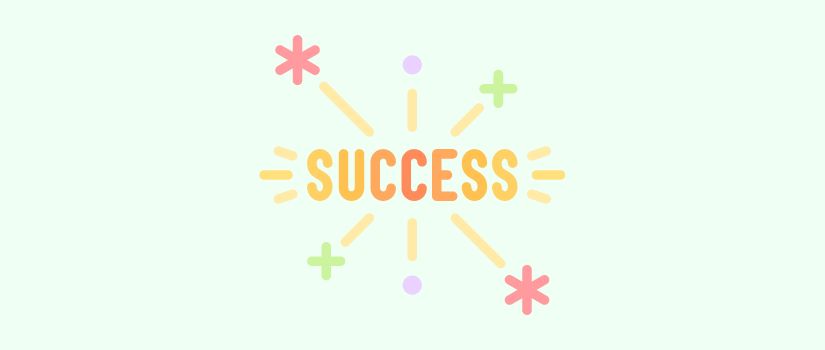
The statement "Behind every successful man there is a woman" has been widely debated and interpreted in various ways.
Some people argue that it is a truth, emphasizing the supportive role that a partner, often a wife or significant other, plays in the success of an individual.
This support can come in many forms, including emotional encouragement, practical assistance, and shared responsibilities, all of which contribute to the person's achievements.

People may become cold-hearted and emotionless for various reasons, often stemming from negative experiences or coping mechanisms developed over time.
Traumatic events, such as abuse, betrayal, or significant loss, can lead individuals to shut down emotionally as a way to protect themselves from further pain. In some cases, repeated disappointments or failures may also contribute to a sense of numbness or detachment.

It's totally normal to struggle with procrastination. Many of us face this challenge at some point in our lives. One reason you might delay things is because tasks feel overwhelming or daunting, so you put them off to avoid feeling stressed or anxious.
But don't worry, there are plenty of ways you can change this pattern! Start by breaking tasks down into smaller, more manageable steps. This makes them feel less intimidating and helps you get started more easily.

Bad habits can develop for a variety of reasons, but they often start as a way to cope with stress, boredom, or other emotions.
Sometimes, we turn to habits like overeating, smoking, or excessive screen time as a temporary escape from uncomfortable feelings or situations.

Waking up early in the morning can be tough for many reasons. One common reason is that our bodies have a natural sleep-wake cycle, and disrupting this rhythm by waking up earlier than usual can leave us feeling groggy and tired.
Additionally, factors like stress, poor sleep quality, and unhealthy habits can make it even harder to wake up early.
However, there are several strategies you can try to make waking up easier.

Overthinking negative thoughts can be exhausting and overwhelming, but there are ways to break free from this cycle and regain control of your mind.
One effective strategy is to practice mindfulness. Mindfulness involves bringing your attention to the present moment without judgment. By focusing on your breath, sensations in your body, or the sights and sounds around you, you can interrupt the pattern of negative thinking and bring yourself back to the present.
Another helpful technique is to challenge your negative thoughts. When you notice yourself overthinking, ask yourself if there is evidence to support these thoughts or if they are simply assumptions. Often, negative thoughts are distorted and exaggerated, and challenging them can help you see things more realistically.
It's also important to practice self-compassion. Treat yourself with kindness and understanding, just as you would a friend who is struggling. Remember that it's okay to have negative thoughts, and they don't define your worth as a person.
Engaging in activities that bring you joy and fulfillment can also help distract you from overthinking. Whether it's spending time with loved ones, pursuing a hobby, or getting outdoors, finding things that make you happy can shift your focus away from negative thoughts.
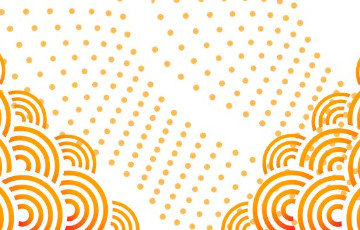
When I don't feel respected, I take steps to address the situation in a calm and assertive manner. First, I reflect on why I feel this way and try to identify specific instances or behaviors that have contributed to my feelings. This helps me understand the root cause of the issue.
Next, I communicate my concerns directly and respectfully to the person or people involved. I express how their actions or words have made me feel and explain why respect is important to me. I also listen to their perspective and try to understand their intentions.
If the lack of respect persists despite my efforts to address it, I may need to set boundaries to protect myself. This could involve limiting my interactions with the person or seeking support from others, such as friends, family, or a supervisor.
Additionally, I focus on building my self-esteem and confidence. Reminding myself of my worth and strengths helps me maintain my sense of dignity and self-respect, even in challenging situations

Let's talk about depression in a friendly and relatable way. Depression isn't just feeling sad—it's like being stuck in a dark cloud that won't go away. You might feel empty, hopeless, or just not like yourself. It can affect anyone, regardless of age, gender, or background.
One of the hardest things about depression is that it can make you feel alone, even when you're surrounded by people who care about you. It's like being in a crowded room but feeling like you're the only one there. But the truth is, you're not alone. There are people who understand what you're going through and want to help you feel better.
It's important to know that depression is not a sign of weakness, and it's not something you can just "snap out of." It's a real medical condition that often requires treatment, just like any other illness. That might mean therapy, medication, or a combination of both. And that's okay. Asking for help is a sign of strength, not weakness.
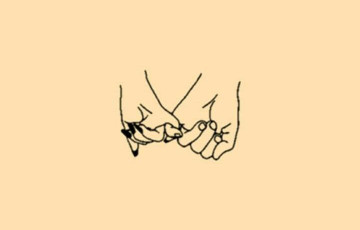
I promise to be a good person.
I promise to believe in myself.
I promise to enjoy every day.
I promise to make this world a better place.
It is my personal approach that creates the climate. It is my daily mood that makes the weather.
I possess tremendous power to make a life miserable or joyous. I can be a tool of torture or an instrument of inspiration.
I can humiliate or humor, hurt or heal. In all situations, it is my response that decides whether a crisis will be escalated or de-escalated.
I am only one, but still, I am one. I cannot do everything, but I can still do something; and because I cannot do everything, I will not refuse to do something that I can do.
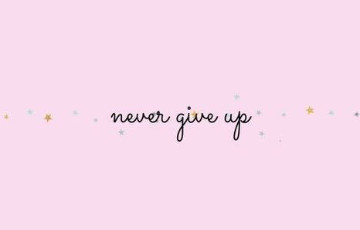
Hey there! Let's talk about the incredible attitude of never giving up. It's like having a secret superpower that helps you overcome any obstacle life throws your way.
First off, let's get real: life can be tough sometimes. Things don't always go as planned, and setbacks are inevitable. But here's the thing: giving up is never the answer.
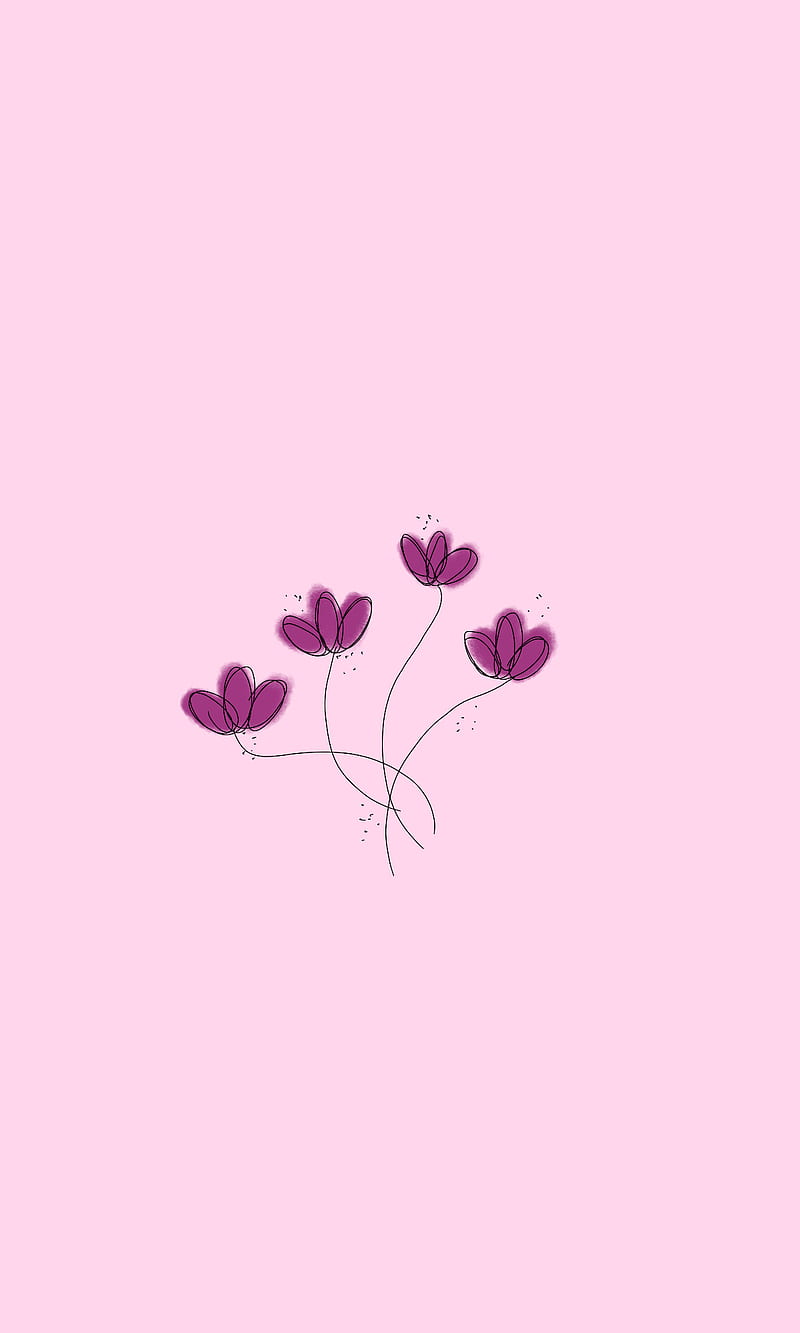
Think about it this way: every great success story has its fair share of challenges and failures. But the people who make it to the top? They're the ones who refuse to throw in the towel, no matter how tough things get.
So, how do you cultivate this never-give-up attitude? It starts with mindset. Instead of seeing obstacles as roadblocks, view them as opportunities for growth and learning. Embrace the struggle, knowing that it's making you stronger and more resilient.
Next, surround yourself with positivity. Hang out with people who lift you up and encourage you to keep going, even when it feels like the odds are stacked against you.
And remember, progress, no matter how small, is still progress. Celebrate your victories, no matter how tiny they may seem. Each step forward brings you closer to your goals.
So, the next time life knocks you down, dust yourself off and keep moving forward. With the attitude of never giving up, there's nothing you can't conquer. Keep believing in yourself, my friend and no one can stop you !!
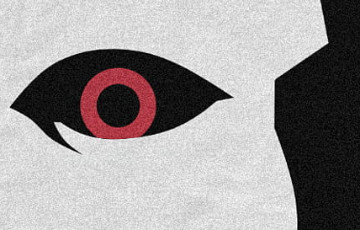
Ego is like a protective shield we carry around, but sometimes, it gets in the way of our growth and happiness. It's that voice inside us that says, "I'm better," or "I deserve more." While a little ego can boost confidence, too much can blind us to our flaws and harm our relationships.
Imagine you're in a group discussion, and someone challenges your ideas. Instead of listening, your ego flares up, and you defend your viewpoint fiercely, even if you're wrong. This stubbornness closes doors to new perspectives and learning opportunities.
Ego often thrives on comparison, making us feel superior or inferior to others. It's like a race we're constantly running, trying to outdo everyone else. But this race has no finish line, leaving us exhausted and unsatisfied.
Moreover, ego can create rifts in our relationships. When we prioritize our own needs and desires above others', it leads to conflict and misunderstanding. We become so focused on being right that we forget the value of empathy and compromise.
But here's the thing: recognizing and taming our ego can lead to immense personal growth and fulfillment. It's about cultivating humility and self-awareness, understanding that we're all flawed and learning from our mistakes.

By letting go of our ego, we open ourselves to deeper connections and meaningful experiences. We become more open-minded, empathetic, and compassionate individuals. And in doing so, we create a ripple effect of positivity that enriches not only our own lives but the lives of those around us.
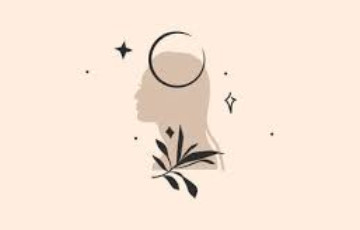
Intuition is like a silent guide within us, whispering wisdom when we least expect it. It's that gut feeling, that inner knowing that helps us navigate life's twists and turns. It's not something we can always explain logically, but it's undeniably valuable.
Imagine you're at a crossroads, unsure which path to take. Your mind might be clouded with doubts and fears, but your intuition cuts through the noise, pointing you towards the right direction. It's like having a compass in a dense forest; even when the path ahead is unclear, intuition helps you find your way.
Many great discoveries and decisions are made because someone listened to their intuition. Think of scientists who followed a hunch, leading to groundbreaking breakthroughs. Or entrepreneurs who trusted their gut, launching successful ventures against all odds.
Intuition isn't just about making big decisions; it's also about the small moments in life. It's the feeling that tells you to trust someone, or to avoid a certain situation. It's the instinct that keeps you safe when danger lurks nearby.
But intuition isn't always loud and clear; sometimes, it's subtle, requiring us to quiet our minds and listen closely. In our fast-paced world, it's easy to ignore intuition in favor of logic or rationality. Yet, when we learn to tune in, we realize its immense value.
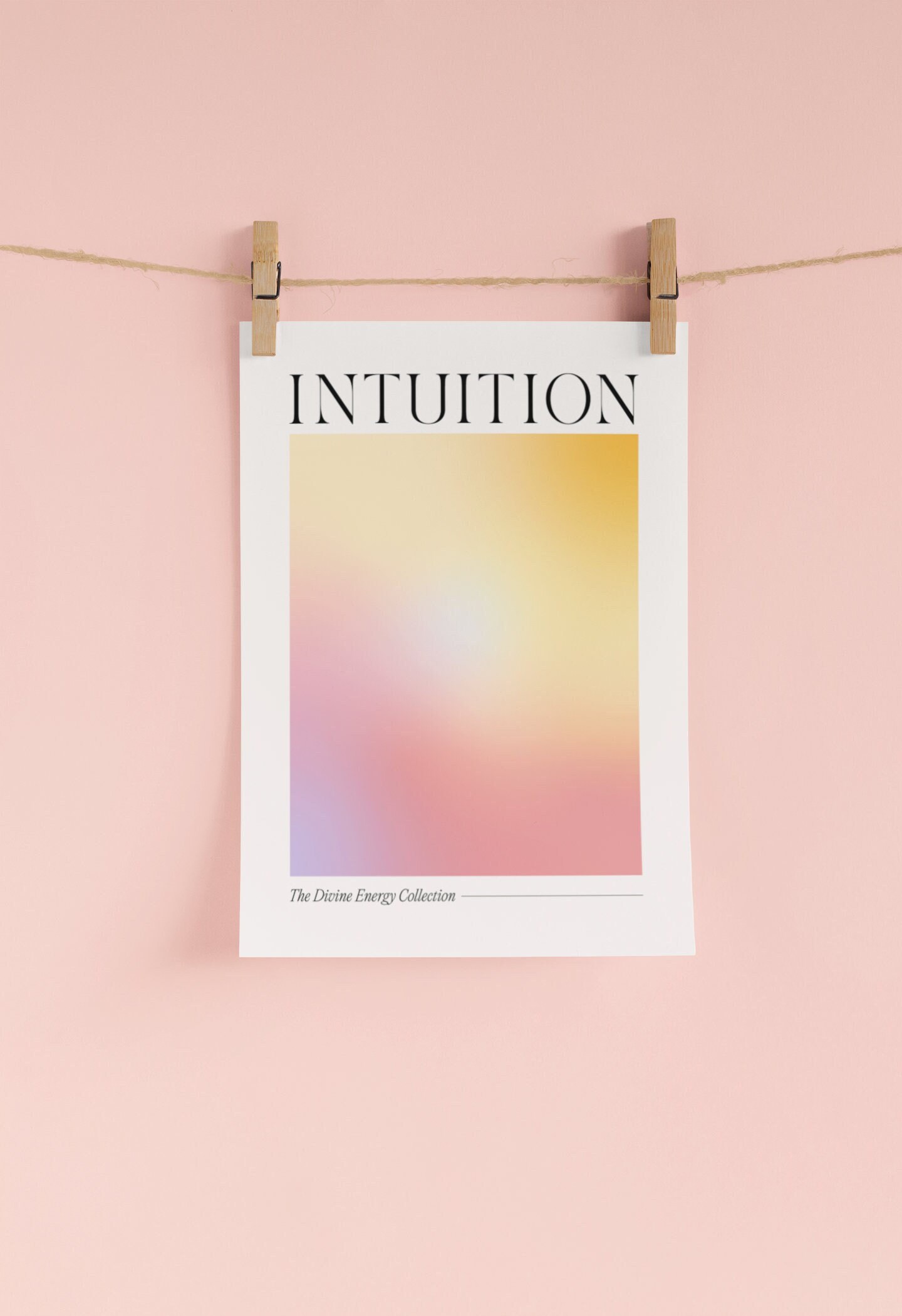
So, how can we harness the power of intuition? It starts with mindfulness and self-awareness. By paying attention to our inner voice and honoring our instincts, we can make better choices and lead more fulfilling lives.
In a world overflowing with information and opinions, intuition serves as our North Star, guiding us toward authenticity and purpose. It's a gift we all possess, waiting to be embraced and trusted.
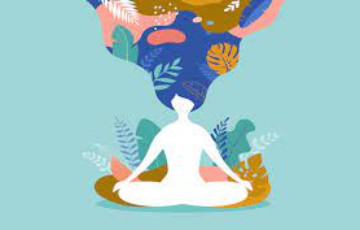
Once upon a time, a man went deep in the forest to learn martial arts from a Zen master. The master was very famous and excellent in his field.
When his student reached there and expressed his wish and urge to learn the art, the master agreed. But as soon as the master started, the student began to interrupt everything he was being taught because he had doubts about the master's skill as he had some coaching earlier.
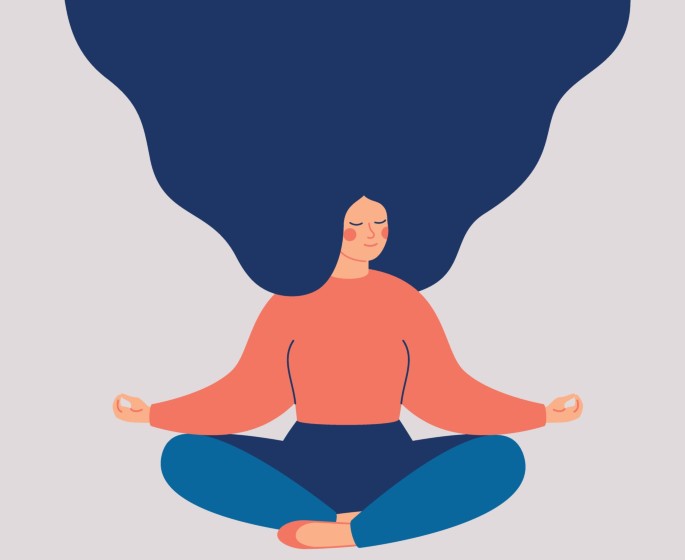
So the master invited the student for a cup of tea. The master asked, "What would you like to have, tea or coffee?" Tea replied the student. But the master started pouring in coffee. The student said, "Stop master, I asked for tea, not coffee." The master started pouring tea into the same cup. The student said, "Stop master, first you need to empty the cup." "Exactly", said the master, "the cup needs to be emptied".
To learn anything we first need to empty our cup (mind) if we want to learn something from Someone. We have to keep everything outside. Only then we will gain something.
If we think we are better than others speaking on the microphone, we will gain nothing. The pride in us will contaminate the good we can gain. So from today let us make it a point to keep our minds empty to gain from other's teachings.

A person never has any complaint against himself. The complaint is always about someone else. The other person is not going as per my wish, is not doing as per my wish, mostly due to these small reasons we remain troubled. The causes of problems are always others, never ourselves.
The reason for this is man's tendency to think that satisfaction lies somewhere outside, hence he wants to control every person in his own way. This tendency to impose one's will on everyone is dangerous because of the tendency within oneself to make others behave as one wishes. The same tendency is present in others also. In this way the clash of tendencies creates conflict.
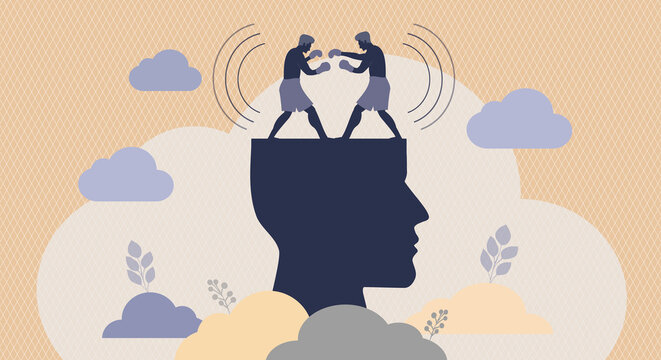
You may find some people who integrate their personality into your personality, but this tendency is not satisfied with the dedication of just one person but keeps increasing.
It is working as per my wish, it is very good but why is it not working as per my wish, it should work. When this desire becomes strong then the restlessness of the mind starts increasing.
It is the 'ego' itself that is why people do not follow my wishes. Where there is 'I', there is 'mine' there is ego and ego is such a hunger.
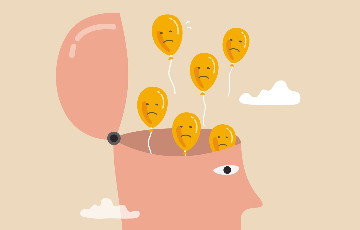
A glass full of milk was kept on the table. By mistake, my hand hit the table. The result was what usually happens. The glass fell down and broke, and all the milk spilled out. What do I do now?
First option: Would have regretted this incident for many hours.
Second option: Resolve that I will take care of it from now on and get busy with other work.
The first option is stupid. Why?
Because no matter how much someone cries, not even a drop of milk can be returned.
The second option is wise. Why?
Because whatever has happened, has happened now. There is no possibility of change in that.
Therefore, it is wise to learn from this incident so that it does not happen in future.
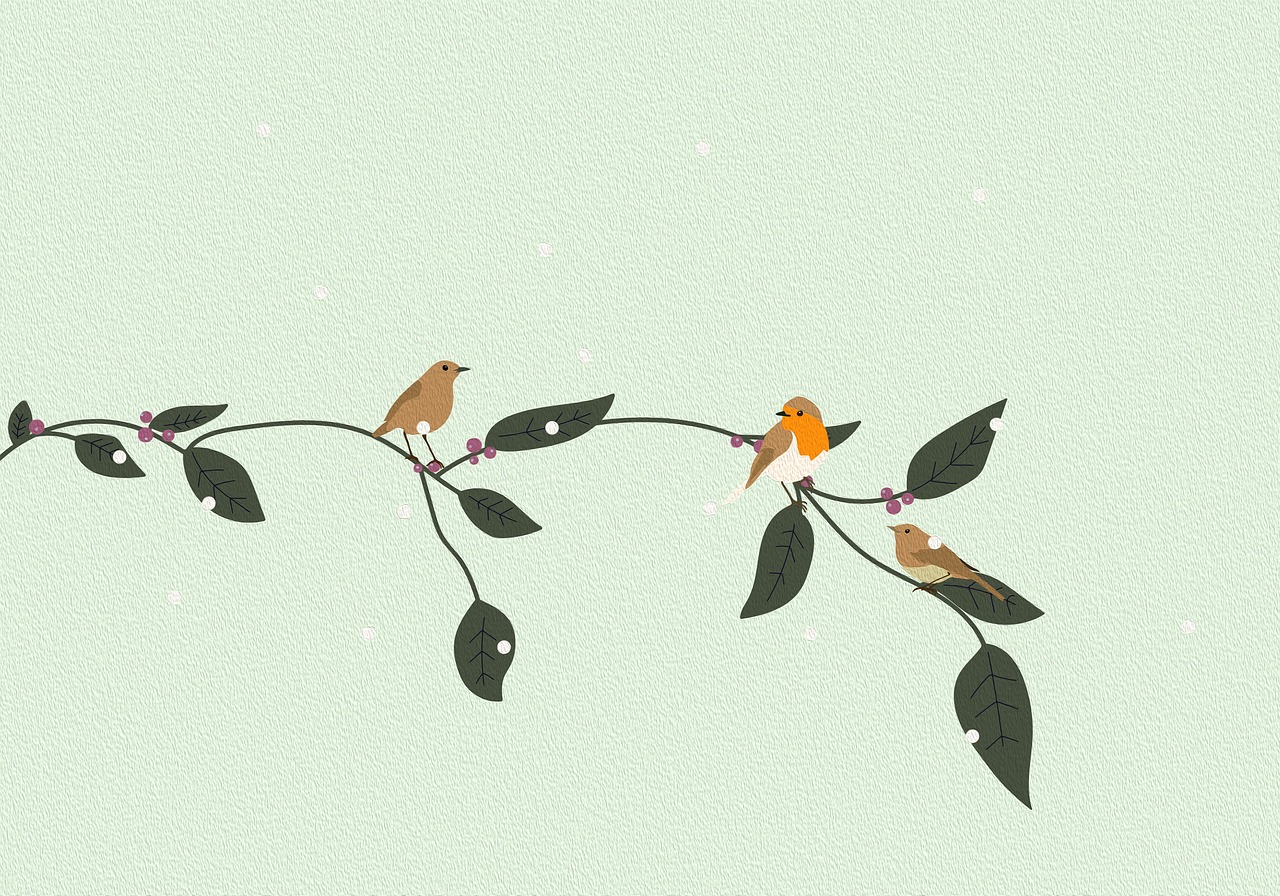
Whatever happened in the past cannot be changed even an iota. We are not able to bring back even a moment that has passed while speaking. What has passed has passed.
The condition of those who remain stuck in the past is like that of two drunkards who reached the river bank one night and seeing an empty boat, boarded it.
Both of them paddled a lot throughout the night. It's morning. They were surprised that they were right back from where they had come. I rowed so hard the whole night but the boat did not move even a little.
After all, what went wrong? The boat was tied to the shore with a rope and they had forgotten to untie it.

The feeling of gratitude should be in our minds. Our attention is always focused on the things we do not have.
We don't pay attention to what we have. Lord, you have given us so much. When I look around me, I see how many people there are who don't have all that I have.
O God, I am grateful to you. This is the feeling of being thankful.

An empty glass is kept on the table. Water was poured into it and it was half filled with water. Pooja said, 'The glass is half full.' Rama said, 'The glass is half empty.'
The question arises: whose point of view between Pooja and Rama is correct?
Answer: Both are right, but their viewpoints are different. While Pooja is celebrating 'whatever is available', Rama is lamenting 'whatever is not available'.
Whatever the time, there are many things in the life of all of us for which we can thank God. The biggest blessing is that we are alive.
Our breathing is coming and going. Millions of humans were born on this earth who left their bodies before reaching our age.
May God!! we should not complain about this, because if we do not have shoes on our feet, then what if we have feet? If these were not there, what would we have done?
One should be thankful to God in every situation and remain in His mercy.

A labourer was breaking big stones. This hammer was hitting a stone vigorously. His first, second and third blows had no effect on the stone, not even a small crack was created.
Still, he did not stop hammering. The fifth blow, tenth blow and fifteenth blow also happened but the stone did not break. He hit the hammer for the twentieth time and the stone broke.
So should we assume that all the first nineteen attacks went in vain? No. Even though the result of those nineteen blows was not visible on the upper surface of the stone, the truth is that somewhere inside the stone was breaking.

Similarly, many times in life, success is not visible even after working properly. This does not mean that your hard work went in vain. This means that the hard work you have done till now is not enough, you need to work a little more.
The worker hit all the blows with his hammer in the same direction and at the same place, only then did the stone break. If he had changed the place of hitting the hammer every time, the stone would not have broken so quickly.
The women of the village go to the well to draw water. Pulling water with a rope leaves deep marks on the stones of the well where strict stone and soft rope.
Then how do marks appear on the stone due to the rubbing of the rope?
Yes, this is possible only with continuous efforts. It is not possible that if the rope comes in contact with that stone two-four or ten-twenty times then this result will be achieved.

These marks are the result of a rope continuously passing over that stone for many years. Here too, with consistency, even the seemingly impossible task becomes possible.

Two boxes of sweets are kept on a table. The first box beautifully wrapped in colorful paper is attracting everyone's attention.
The second box is wrapped in ordinary paper. Which would you like to open first?
That's right, to the first box.
Why?
Because its outer cover is charming. The truth is that everyone will open the beautifully packaged box and eat the sweets first, the ordinary box will be opened later.
But which sweet will finish first?
Obviously, the one from the two boxes will be tastier.
Yes, even if it is in an ordinary box. The simple meaning is that the sweets which will be eaten with pleasure, are not related to the decoration of the box.

A human being is also a box full of habits, behavior, thinking and qualities.
The outer attire attracts everyone but what kind of person he is, how he thinks, how he speaks, how he behaves, all these are more important.
There is a saying 'When you meet a person for the first time, you judge who he is by his clothes. When he leaves, his true identity is revealed through his personality.
Nowadays, a lot of emphasis is given to the choice of clothes. Yes, clean, well-worn clothes increase a person's self-confidence.
But the truth is that clothes are not everything. If there is something special in your personality then your clothes should be of modern fashion or not that does not matter.

Just think, what does a doctor's education do with his clothes? His knowledge does not depend on clothes. What Dr. Bhimrao Ambedkar, Chairman of the Drafting Committee of the Indian Constitution, wore does not make any difference to his invaluable contribution.
As much emphasis as you give on choosing clothes, give as much emphasis on imbibing virtues.
Services
Opinions
My Topic

Compare and contrast related topics discuss the similarities and differences of things such as ideas, opinions, concepts, items, points, etc.
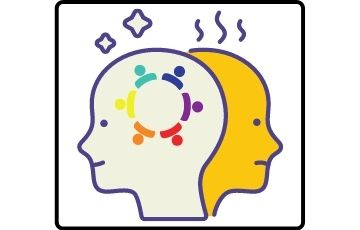
Personality refers to the combination of qualities, attitude, and behavior, that makes a person distinct from others. Character refers to a set of moral and mental qualities and beliefs, that makes a person different from others.
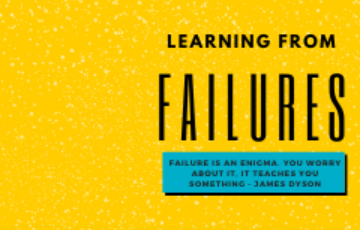
"It’s good to have a failure when you are young because it teaches you so much. For one thing, it makes you aware that such a thing can happen to anybody, and once you’ve lived through the worst, you’re never quite as vulnerable afterward.”
- Walt Disney
Celebrate Success. Learn from Failures.
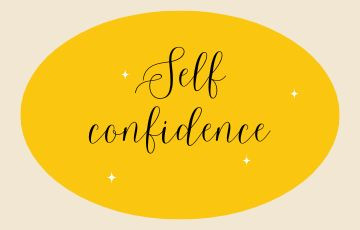
Confidence is a feeling of trust in self or others. When you are clear-headed and have that element of esteem in yourself, it means you have self-confidence. Self-confidence is your trust in your own ability to do any task by viewing yourself.

Life hacks are such simple tips and tricks that save an incredible amount of your time. They improve your productivity and help you find quick fixes to annoying situations.

A sound and healthy sleep are extremely important. By giving rest to your body, you are in a way helping yourself to feel good and make your body and brain function more effectively.
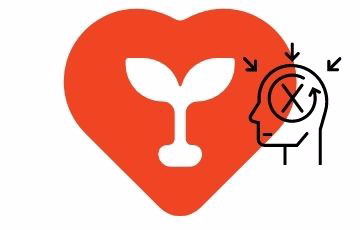
Practice self-love to believe in yourself. You love yourself and consider to be a valuable and commendable person. You have a positive opinion and judgment in your own self. Compliment yourself. Congratulate and applaud for your merits. Console if need be. But respect yourself and love more day after day
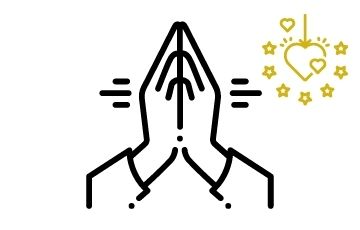
Gratitude is the positive element in you that lets you express your thankfulness for people or things. Gratitude forms an important trait as it defines your attitude. Gratitude attitude also defines who you really are, what you think you are, and what others think you are.
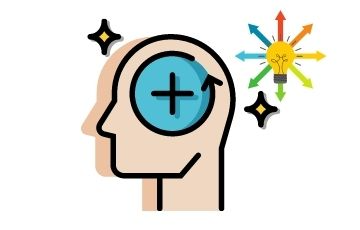
Positive thinking is an emotional and mental attitude that focuses on the good and expects results that will benefit you. It’s about anticipating happiness, health, and success – essentially, training yourself to adopt an abundance mindset and cultivate gratitude for your own successes and those of others.

The Law of Attraction is the ability to attract into our lives whatever we are focusing on. It is the Law of Attraction which uses the power of the mind to translate whatever is in our thoughts and materialize them into reality.







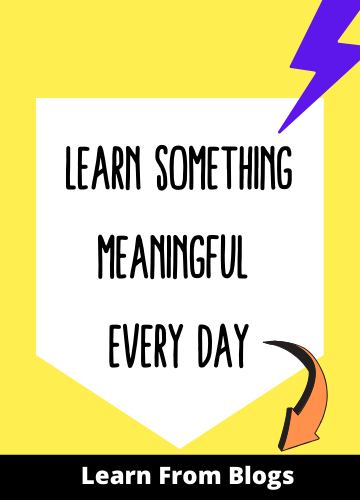
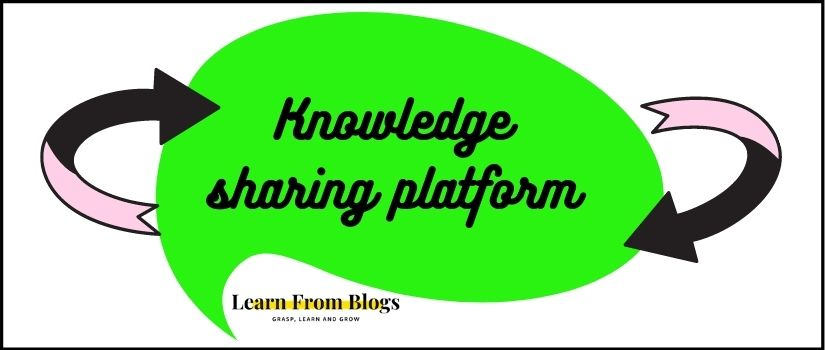
0 comment